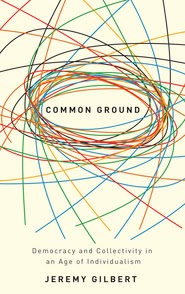Jeremy Gilbert and I sometimes joke about TOP, the Transindividual Oriented Philosophy. The reference is obviously to the phenomenon of OOO (Object Oriented Ontology) in the early part of the millennium. As much as our joke has to do with sort of doctrinaire and polemical way the former arrived on the scene and our lack of interest in any such thing. (I should say in a parenthetical that is way too late, one of the things that always troubled me about OOO is that it emerged and thrived on blogs, but blogs with their intersection of the social and the technological seemed the last thing that the last thing that the crowd wanted to think about. Part of what makes me irredeemably a historical materialist is that I think the question of understanding where one is thinking from is paramount even if a bit quixotic--one can never see the ground that one speaks from). Despite this joke transindividuality, at least in terms of contemporary writers who use the concept, less a school of thought than a series of intersecting critiques and articulations. Or, if one wanted to be clever about it, the collection of writers who work on transindividuality are all part of a general orientation that is individuated differently in each of their specif philosophical articulations. I would say more about this but I feel like this is something that I tried to say with the examination of Balibar, Stiegler, and Virno in The Politics of Transindividuality.



















